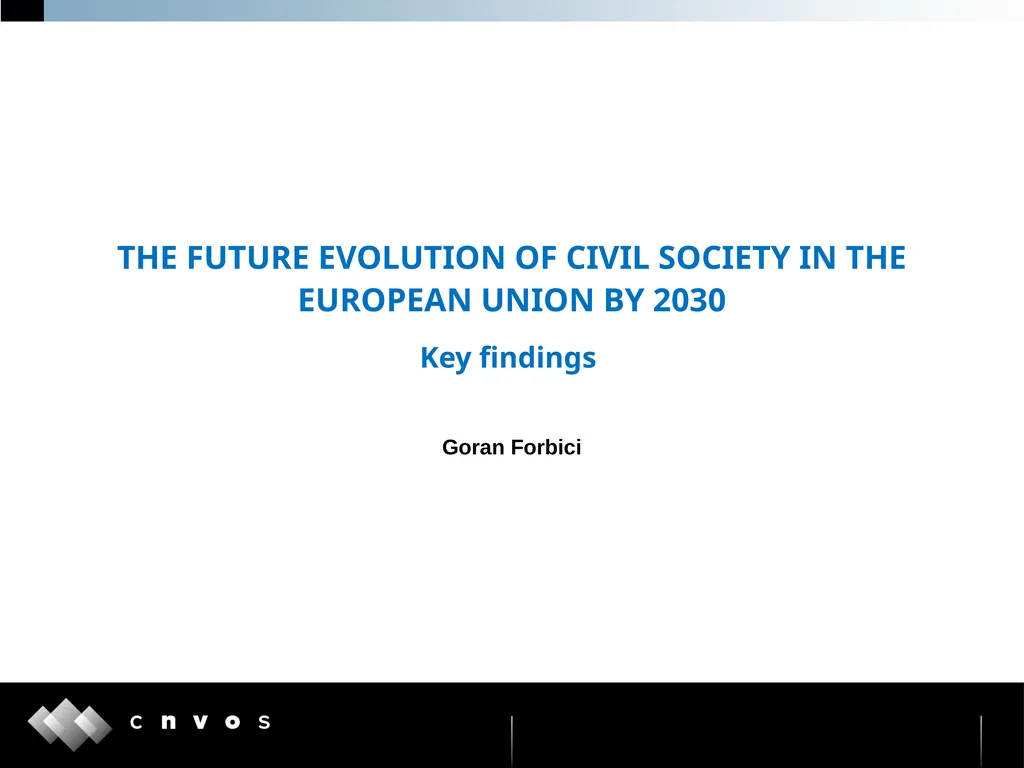
Author : debby-jeon | Published Date : 2025-05-29
Description: THE FUTURE EVOLUTION OF CIVIL SOCIETY IN THE EUROPEAN UNION BY 2030 Key findings Goran Forbici METHODOLOGY Broad, as well as in-depth approach: Wide online survey: 180 respondents 33 European CSO networks 147 CSOs from 24 EU member statesDownload Presentation The PPT/PDF document "" is the property of its rightful owner. Permission is granted to download and print the materials on this website for personal, non-commercial use only, and to display it on your personal computer provided you do not modify the materials and that you retain all copyright notices contained in the materials. By downloading content from our website, you accept the terms of this agreement.
Here is the link to download the presentation.
"THE FUTURE EVOLUTION OF CIVIL SOCIETY IN THE"The content belongs to its owner. You may download and print it for personal use, without modification, and keep all copyright notices. By downloading, you agree to these terms.













